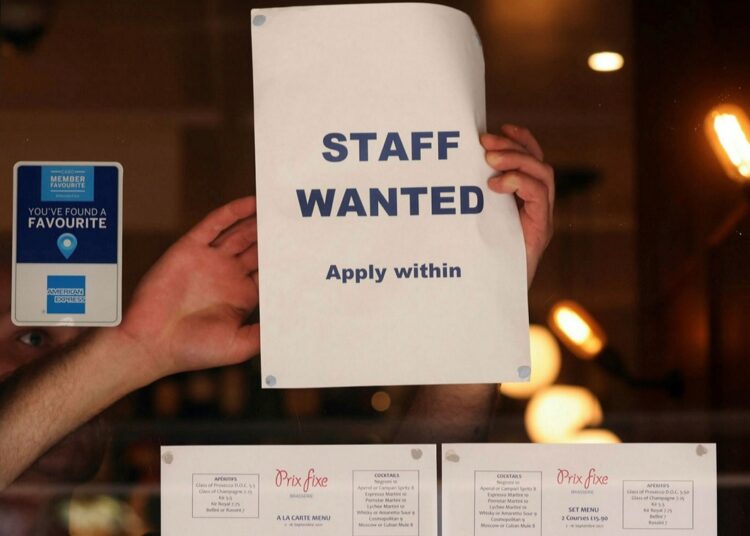LONDON – British companies hired permanent staff at the slowest rate in a year last month, despite raising starting salaries by a record amount, as they struggled with a lack of qualified candidates, a monthly survey of recruiters showed on Friday.
Britain’s central bankers are looking out for signs that the tight job market will prolong the current surge in inflation, which hit a 30-year high in February – though they have also warned high inflation will hurt growth as the year goes on.
The Recruitment and Employment Confederation (REC) said starting salaries for permanent staff saw the biggest increase since its records began more than 24 years ago. Hourly rates for temporary staff also rose, though by less than the record increases seen last year.
“We can clearly see that labour and skills shortages are driving inflation in these latest figures,” REC chief executive Neil Carberry said according to Reuters.
Despite higher pay for job-switchers, hiring of permanent staff last month was its weakest since March 2021, while temporary staff billings rose by the least since April 2021.
The REC said its members reported that a generally low unemployment rate, uncertainty related to the COVID-19 pandemic and Ukraine war, fewer EU workers and a robust demand for staff had all reduced the number of job applicants.
“Record COVID infection levels are also pushing up demand for temporary workers, particularly in blue collar and hospitality sectors, underpinning the ability of temps to seek higher rates,” Carberry said.
Britain’s unemployment rate in the three months to January fell to 3.9%, its lowest since before the pandemic, while the number of job vacancies in the three months to February rose to a record 1.318 million, according to official data.
The supply of workers has shrunk by around half a million since the pandemic, largely reflecting older workers dropping out of the workforce.
Annual wage growth excluding bonuses was 3.8% in the three months to January, above its pre-COVID rate but well below the pace of consumer price inflation, which government forecasters expect to peak at 8.7% later this year.






Discussion about this post